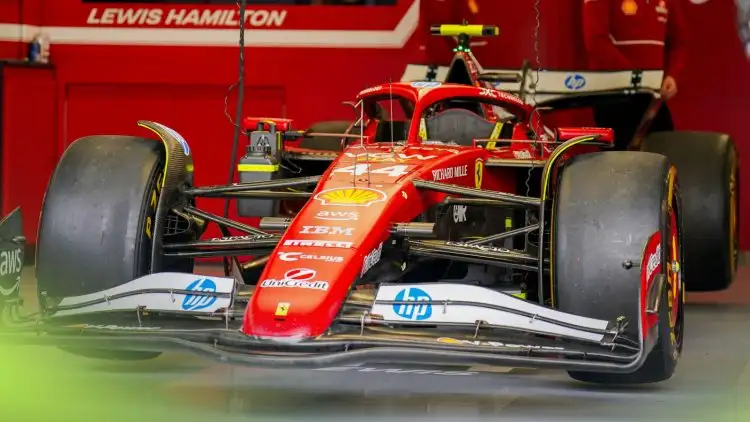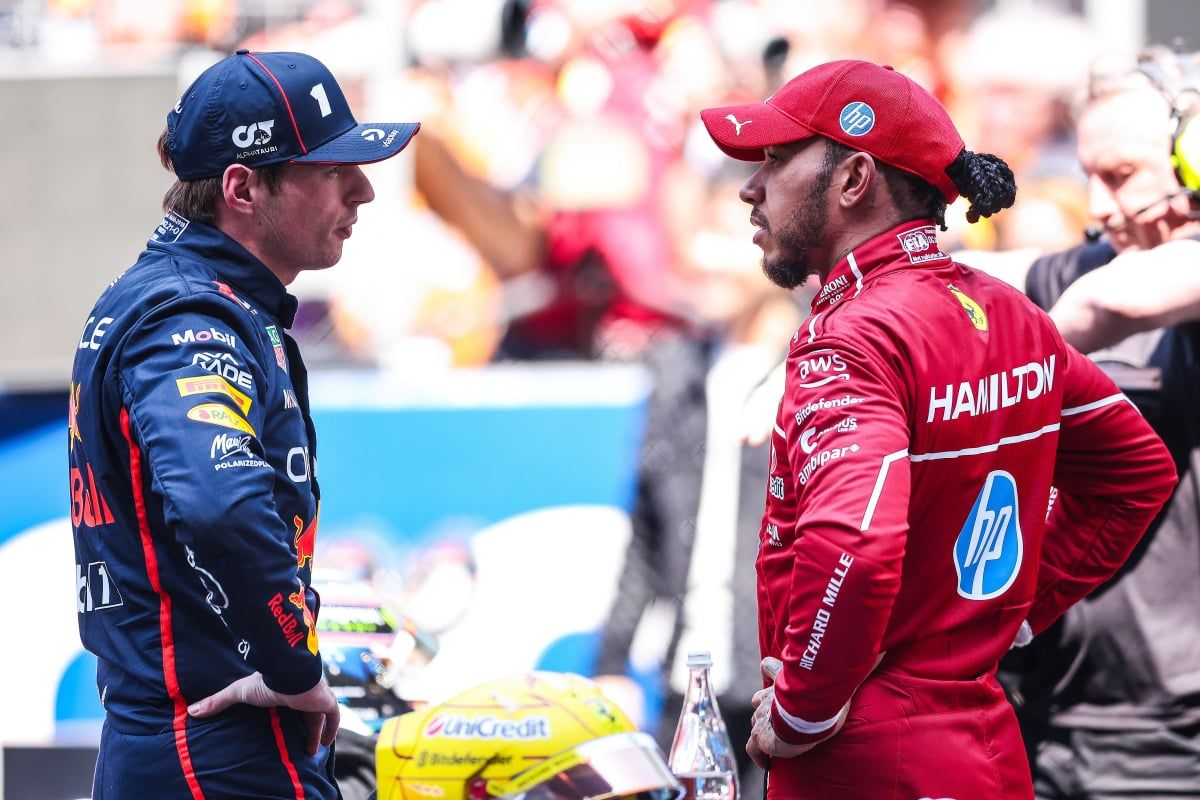Under-Fire Fred Vasseur Admits Defeat in 2025 Title Race as Ferrari S… read more
Ferrari team principal Fred Vasseur has delivered a sobering assessment of his team’s 2025 Formula 1 season, openly admitting that the Scuderia is no longer realistically in the running to challenge for the championship. With McLaren dominating the field and Ferrari yet to secure a single race victory, the Frenchman has conceded that the gap at the top of the standings is likely too great to close, prompting a strategic shift in focus toward the radical regulatory overhaul coming in 2026.
Speaking after a disappointing British Grand Prix at Silverstone—where Lewis Hamilton narrowly missed the podium and Charles Leclerc finished a distant fourth—Vasseur acknowledged that Ferrari’s current performance is insufficient to mount a serious title challenge. While the team remains second in the Constructors’ Championship, the deficit to McLaren is enormous: 238 points separate the Maranello-based outfit from the championship leaders. Ferrari currently sits on 222 points, while McLaren has surged ahead with nine victories from twelve races, asserting their superiority in every aspect of the campaign thus far.
“I think we are all lucid that it will be more than difficult to come back on McLaren,” Vasseur stated bluntly. “First, they have an advantage. Sometimes on some tracks or in some conditions, we are able to fight with them, but overall, they have an advantage.”
This clear-eyed admission is a sharp contrast to the optimism that surrounded Ferrari at the beginning of the season. With seven-time world champion Lewis Hamilton joining the team and Charles Leclerc continuing to push for elite performances, expectations were sky-high. Yet despite a promising car and driver pairing, the results have not materialized on the track. Ferrari’s consistent lack of pace relative to McLaren—and occasionally even Mercedes and Red Bull—has seen them fall back into familiar territory: playing catch-up while others dictate the title fight.
Vasseur’s comments reflect a growing acceptance within the team that 2025 is not their year. The French team principal has effectively written off their hopes of a title, shifting instead to a more realistic and pragmatic outlook. With sweeping new technical regulations arriving in 2026—expected to overhaul power unit architecture, aerodynamics, and sustainability standards—Vasseur has confirmed that Ferrari’s development resources are increasingly being diverted to next year’s project.
“They have a big advantage in terms of the championship,” Vasseur continued, emphasizing the daunting gap to McLaren. “Even if you win all the races until the end, I’m not even sure that you will be champion.”
While this acknowledgment may seem defeatist to some, it signals a more strategic long-term vision. By beginning work on the 2026 car earlier than rivals who may remain embroiled in the current championship fight, Ferrari could potentially gain an advantage under the new ruleset. In a sport where development timing can dictate competitive cycles for years to come, this move might prove wise in hindsight.
Nevertheless, Vasseur was quick to clarify that Ferrari has not entirely checked out of the current season. Despite the title slipping away, there remain secondary objectives: securing race wins, outperforming rivals like Mercedes and Red Bull, and rebuilding team confidence. “We are still in the fight with Mercedes and Red Bull,” he said. “We are still in the fight to win some races, and it’s important for the team.”
That internal competition is indeed still fierce. Mercedes, with George Russell and a rejuvenated Hamilton, continues to push aggressively, while Red Bull—though shaken by recent managerial changes and the sacking of Christian Horner—remains potent, especially on high-speed circuits. Ferrari’s ability to compete with these teams will be vital not only for constructor points but also for morale and momentum heading into the crucial development period for 2026.
The team’s inability to deliver victories so far in 2025 has also placed increasing scrutiny on Vasseur’s leadership. Hired to steer Ferrari back to its championship-winning ways, the former Alfa Romeo boss has had mixed success. While the team’s operational sharpness and reliability have improved, Ferrari still struggles to consistently challenge for wins, and its strategic calls remain under question in several races. With pressure mounting from both inside and outside Maranello, Vasseur’s decision to pivot toward the future may also be a calculated move to buy time and manage expectations.
In many ways, Ferrari’s story this season mirrors those of previous years—strong on paper, yet unable to translate promise into performance. The hope now is that by beginning work early on the 2026 car, the team can finally break this cycle and mount a serious challenge when the sport undergoes its next major transformation.
Ferrari’s fanbase—the loyal Tifosi—will no doubt be frustrated by the premature concession of the 2025 campaign, particularly given the arrival of a superstar like Hamilton. However, for Vasseur and the Scuderia, the greater ambition lies ahead. If 2025 is to be a transitional year, then 2026 must become the culmination of all the lessons learned and all the groundwork laid in the interim.
Only time will tell if Vasseur’s pivot pays off. But for now, Ferrari must contend with a hard truth: McLaren is out of reach, and the future starts now.




